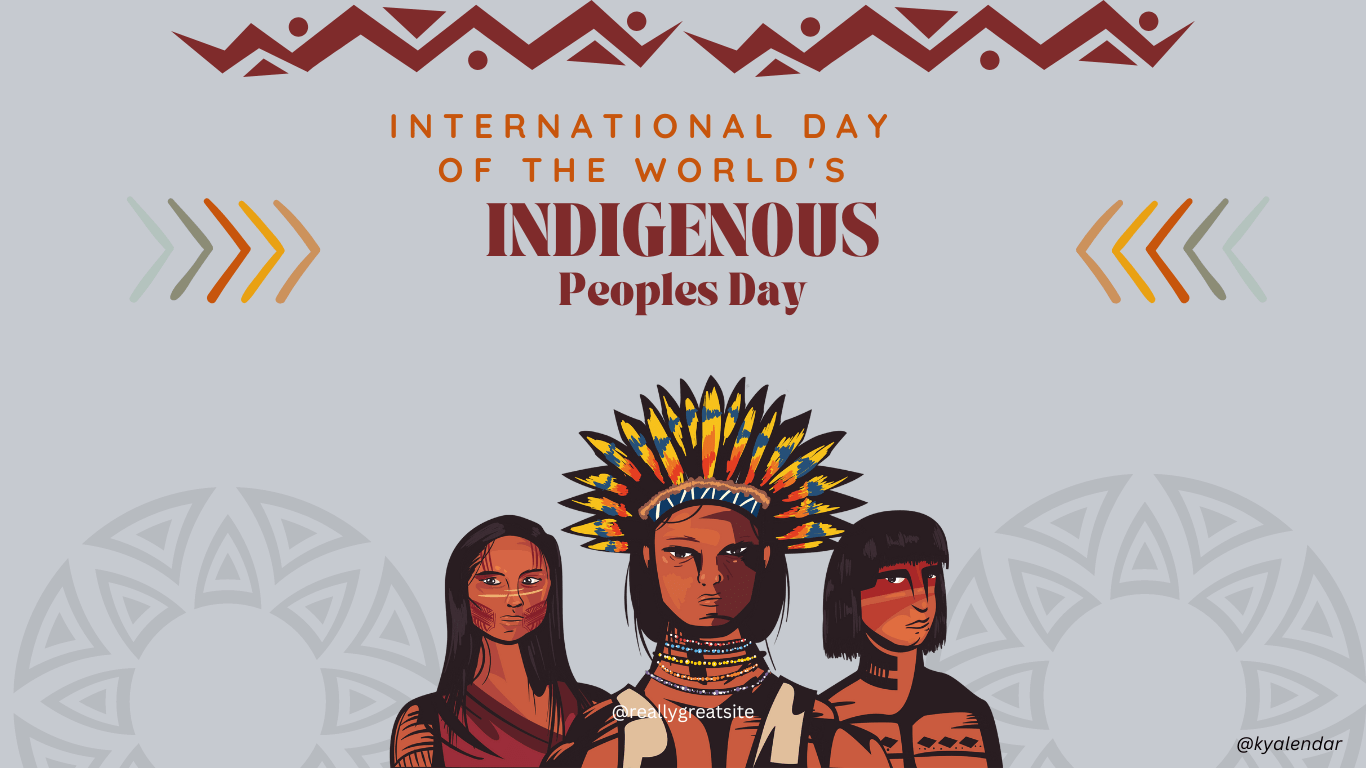
- This event has passed.
International Day of the World’s Indigenous People
August 9

The International Day of the World’s Indigenous Peoples is observed on August 9 each year. It was established by the United Nations General Assembly in December 1994 to promote and protect the rights of the world’s indigenous population. The date marks the day of the first meeting in 1982 of the UN Working Group on Indigenous Populations.
Objectives and Significance
- Raising Awareness: The day aims to raise awareness about the needs and issues faced by indigenous peoples, including their human rights, education, health, and cultural preservation.
- Promoting Rights: It seeks to promote and protect the rights of indigenous communities as articulated in international law, particularly in the United Nations Declaration on the Rights of Indigenous Peoples (UNDRIP) adopted in 2007.
- Celebrating Cultures: The day is also a celebration of the rich and diverse cultures, languages, and heritage of indigenous peoples worldwide. It recognizes their contributions to global cultural diversity and ecological stewardship.
Activities and Events
- Cultural Events: Various cultural events, including traditional music, dance, and art exhibitions, are organized to showcase indigenous cultures.
- Educational Initiatives: Schools and universities may hold seminars, workshops, and discussions to educate people about indigenous history, culture, and contemporary issues.
- Advocacy and Policy Dialogue: Governments, NGOs, and indigenous organizations often use the day to engage in dialogue about policy issues affecting indigenous communities and advocate for their rights.
Themes
Each year, the United Nations selects a theme to focus on specific aspects of indigenous peoples’ lives. Recent themes have included:
- 2023: “Indigenous Youth as Agents of Change for Self-determination.”
- 2022: “The Role of Indigenous Women in the Preservation and Transmission of Traditional Knowledge.”
Challenges Faced by Indigenous Peoples
Indigenous peoples continue to face numerous challenges, including:
- Land Rights: Disputes over land ownership and usage remain a significant issue.
- Cultural Erosion: Modernization and globalization threaten the preservation of indigenous languages and traditions.
- Health Disparities: Indigenous populations often experience poorer health outcomes and limited access to healthcare.
- Economic Inequality: Indigenous communities frequently face higher levels of poverty and unemployment.
Importance of the Day
The International Day of the World’s Indigenous Peoples plays a crucial role in highlighting these issues and promoting action to address them. It serves as a reminder of the resilience and strength of Indigenous communities and the importance of fostering a world that respects and values their contributions and rights